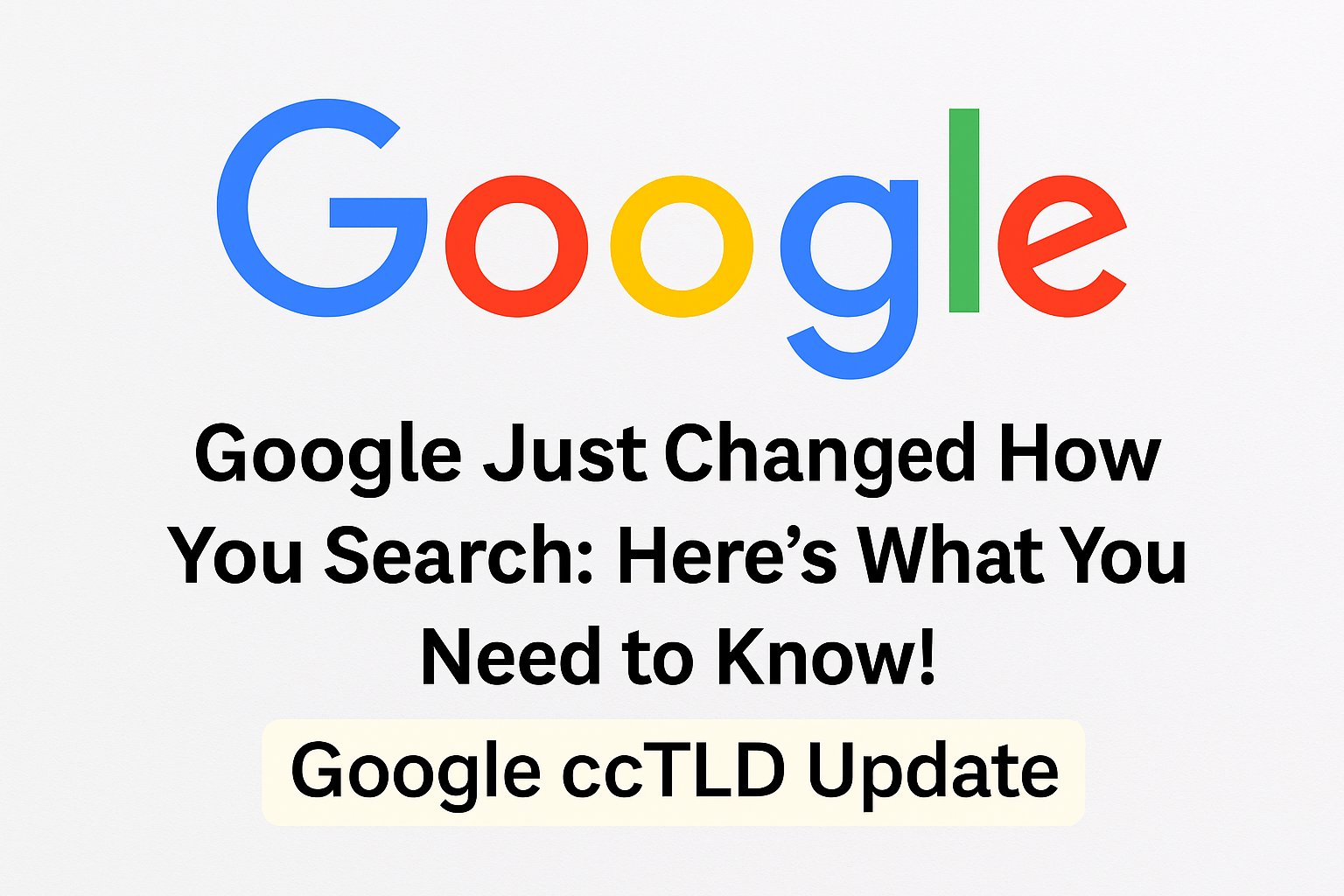If you’ve ever typed in google.ng or google.com.br expecting a more local experience, big changes are on the horizon. Google recently announced a major shift in how it handles country code top-level domains (ccTLDs). This update is part of a broader move to simplify and enhance how we all experience search results — no matter where we are.
Let’s dive into what the Google ccTLD update means for you and why it matters.
What Is a ccTLD?
A ccTLD, or country code top-level domain, is the two-letter domain extension (like .ng for Nigeria or .br for Brazil) that signals a website’s connection to a particular country. For years, using a specific ccTLD meant Google would show you more localized search results relevant to that country.
What’s Changing with the Google ccTLD Update?
With the Google ccTLD update, users will now be automatically redirected to google.com rather than a country-specific Google domain. Whether you’re in Nigeria, Brazil, or anywhere else, your search results will still be localized — without needing a special country domain.
Google first hinted at this move back in 2017 when it began delivering localized search results based on the user’s location rather than the domain used. Now, it’s making it official by phasing out the need for ccTLDs altogether.
Will This Affect Your Search Experience?
Not at all. The way Search works will remain exactly the same. You’ll continue receiving local search results based on your current geographic location. However, you may notice that your browser always shows google.com instead of a country-specific domain.
You might also be asked to re-enter some of your Search preferences, but otherwise, everything should feel familiar.
Importantly, Google emphasized that this change won’t affect how it meets legal obligations in different countries. So, compliance with local laws remains a top priority.
Why Is Google Making This Move?
There are a few reasons behind the Google ccTLD update:
- Consistency: No matter which Google domain you access, you get the same high-quality, localized results.
- Streamlining User Experience: It simplifies how Google Search operates worldwide.
- Improved Accuracy: Location-based services are now sophisticated enough that a ccTLD is no longer needed to determine where you are.
What Should You Do Next?
You don’t need to do anything! The transition will happen automatically over the coming months. Just keep an eye out if you’re prompted to update your Search preferences.
This is yet another step in Google’s ongoing mission to make the web faster, simpler, and more user-friendly — no matter where in the world you are.
